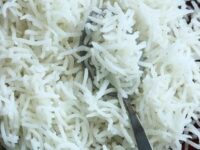PM Modi aims to make GIFT City a centre for sustainable finance, speaks on GDP

Prime Minister Narendra Modi on Saturday said India’s gross domestic product or GDP growth of 7.7 per cent in the first six months of the current fiscal year is a reflection of the country’s strengthening economy and the transformative reforms carried out in the last 10 years.
Addressing the ‘Infinity Forum 2.0’ conference at the GIFT City in Gandhinagar via video link, Modi said his government wants to turn the Gujarat International Finance Tec (GIFT) City into a global nerve centre of the new age global financial and technology services.
“In the first six months of this financial year, India has achieved a GDP growth of 7.7 per cent…Today, the entire world has pinned its hopes on India, and this did not happen just on its own. This is a reflection of India’s strengthening economy and also the transformative reforms carried out in the last 10 years,” Modi said in his address.
Modi said India wants to make its financial hub in Gujarat a centre for global sustainable finance to help fund the $10 trillion investment needed to achieve its 2070 net zero emissions goal.
“GIFT IFSC is an efficient channel to make India a low-carbon economy and get the required green capital flow. Issuance of financial instruments such as green bonds, sustainable bonds, and sustainability-linked bonds will help the world,” Modi said.
He said India wants to expand the role of GIFT City to make it a new-age financial services and technology nerve centre.
GIFT-IFSC is a tax-neutral financial centre that aims to compete with hubs like Singapore as it provides fiscal incentives and a looser regulatory environment.
Modi added that India is one of the fastest-growing fintech markets in the world today and the GIFT International Financial Services Centre (IFSC) is emerging as its centre. The prime minister urged experts to share their ideas on developing a market mechanism for green credits.
Modi also congratulated the people of Gujarat over the inclusion of the state’s traditional Garba dance in the UNESCO’s ‘Representative List of the Intangible Cultural Heritage of Humanity’.

Atul Tiwari is a seasoned journalist at Mumbai Times, specializing in city news, culture, and human-interest stories. With a knack for uncovering compelling narratives, Atul brings Mumbai’s vibrant spirit to life through his writing.






